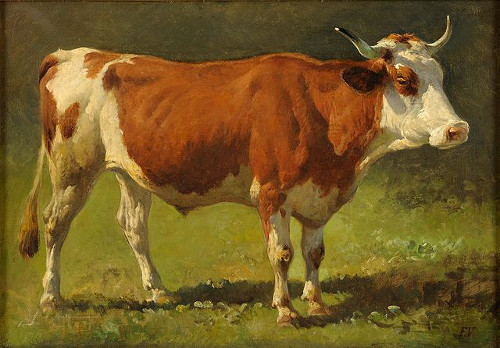
At a livestock exhibition at Plymouth, England, in 1907, attendees were invited to guess the weight of an ox and to write their estimates on cards, with the most accurate estimates receiving prizes. About 800 tickets were issued, and after the contest these made their way to Francis Galton, who found them “excellent material.”
“The average competitor,” he wrote, “was probably as well fitted for making a just estimate of the dressed weight of the ox, as an average voter is of judging the merits of most political issues on which he votes, and the variety among the voters to judge justly was probably much the same in either case.”
Happily for all of us, he found that the guesses in the aggregate were quite accurate. The middlemost estimate was 1,207 pounds, and the weight of the dressed ox proved to be 1,198 pounds, an error of 0.8 percent. This has been borne out in subsequent research: When a group of people make individual estimates of a quantity, the mean response tends to be fairly accurate, particularly when the crowd is diverse and the judgments are independent.
Galton wrote, “This result is, I think, more creditable to the trustworthiness of a democratic judgment than might have been expected.”
(Francis Galton, “Vox Populi,” Nature, March 7, 1907.)
